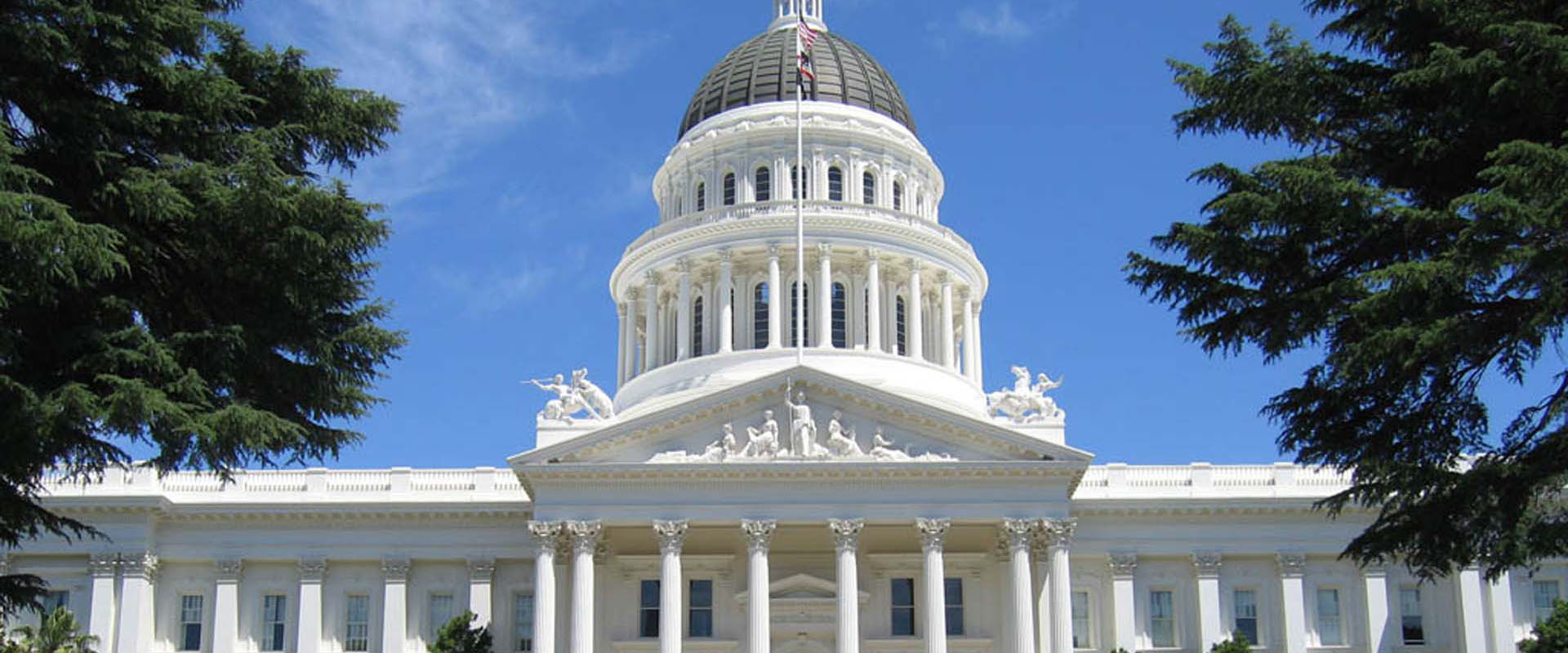New Laws on Student Retention, Grades and Graduation Create More Pandemic-Related Consequences for Schools

July 2021
Number 13
On July 1, 2021, Governor Newsom signed into law a three-part bill that creates new obligations for local educational agencies (LEAs) related to students served during the pandemic-impacted 2020-2021 school year. Assembly Bill (AB) 104 provides parents of “eligible pupils” a supplemental review process to consider retention at the 2020-2021 grade level. The bill also provides that high school students may request that a letter grade be changed to a Pass or No Pass grade; that certain 2020-2021 high school juniors and seniors be allowed to graduate without meeting all local graduation requirements; and that schools provide additional supports towards graduation including a fifth year of high school, credit recovery, or some other opportunity to complete State graduation requirements. These new requirements became effective immediately and include timelines that will likely occur before the first day of the 2021-2022 school year.
Assembly Bill 104
AB 104 adds Education Code section 48071, which requires an LEA to meet and consult with a parent/guardian within 30 calendar days after receiving a written request for an “eligible pupil” to be retained in the same grade level for the 2021-2022 school year. An “eligible pupil” is defined as a student who has received a D, F, or No Pass grade for at least one-half of the student’s coursework in the 2020-2021 school year, but does not include a pupil enrolled in grade 12 during the 2020-21 school year. During this consultation, the LEA must discuss all available learning recovery options, including access to retake prior semester courses where the student received the deficient grades, and other interventions and supports. The consultation must include research on the effects of pupil retention, which may include the multiple studies and evidence collected by the CDE that retention “does not produce higher achievement.” The LEA must notify the parent/guardian of a final determination of the student’s retention within 10 calendar days of the consultation. Notably, this new retention consultation and review process is supplemental to, but does not replace, the LEA’s existing policy on retention.
Additionally, LEAs must grant a request from a high school student to change a letter grade to a Pass or No Pass grade for a course during the 2020-2021 school year, without input from the student’s teacher. (Ed. Code, § 49066.5, added by AB 104.) The number or type of courses eligible for this transcript adjustment cannot be limited by the LEA. A specific application for these requests will be developed by the California Department of Education (CDE). Within 15 calendar days of the CDE’s online posting of the application, LEAs must post a notice on their websites and provide written notice of this option to students and their parents/guardians, along with a copy of the application and a list of postsecondary educational institutions that will accept a Pass or No Pass grade (instead of a letter grade) without prejudice. Students will only have 15 calendar days following the LEA’s posting and notice to make any grade change requests. LEAs will have 15 calendar days after receiving a student’s request to change the transcript and notify the student and the parent/guardian of the change.
Finally, AB 104 provides that LEAs must allow high school students who were in their third or fourth year of high school during the 2020-2021 school year, and who were not on track to graduate in four years, to be exempt from all of the LEA’s graduation requirements that exceed statewide requirements. (Ed. Code, § 51225, added by AB 104.) These students must still meet statewide coursework requirements to graduate and can be provided the opportunity to do so through completion of a fifth year of high school instruction, credit recovery, or some other manner.
Senate Bill 545
Senate Bill 545 provides for similar credit recovery and retention interventions. It was referred to the Assembly Education Committee on June 10, but no hearing has been scheduled yet. We will continue to monitor this Senate Bill for any updates or changes to the retention procedures.
Takeaways
While AB 104 adds another consultation and review process for student retention, a new policy or administrative regulation is not required, and LEAs retain the discretion to make the final retention decision. The new option of a Pass/No Pass grade will require updates to student transcripts and to grade point average calculations. Authorizing students to retake courses, to be excused from local requirements, and to be granted an additional year to fulfill graduation requirements will similarly require specialized attention to alter individual student schedules for next school year and to monitor class sizes.
If you have any questions regarding the impact of AB 104 on LEAs, or on learning recovery efforts in general, please contact the authors of this Client News Brief or an attorney at one of our eight offices located statewide. You can also subscribe to our podcast, follow us on Facebook, Twitter and LinkedIn or download our mobile app.
Number 13
On July 1, 2021, Governor Newsom signed into law a three-part bill that creates new obligations for local educational agencies (LEAs) related to students served during the pandemic-impacted 2020-2021 school year. Assembly Bill (AB) 104 provides parents of “eligible pupils” a supplemental review process to consider retention at the 2020-2021 grade level. The bill also provides that high school students may request that a letter grade be changed to a Pass or No Pass grade; that certain 2020-2021 high school juniors and seniors be allowed to graduate without meeting all local graduation requirements; and that schools provide additional supports towards graduation including a fifth year of high school, credit recovery, or some other opportunity to complete State graduation requirements. These new requirements became effective immediately and include timelines that will likely occur before the first day of the 2021-2022 school year.
Assembly Bill 104
AB 104 adds Education Code section 48071, which requires an LEA to meet and consult with a parent/guardian within 30 calendar days after receiving a written request for an “eligible pupil” to be retained in the same grade level for the 2021-2022 school year. An “eligible pupil” is defined as a student who has received a D, F, or No Pass grade for at least one-half of the student’s coursework in the 2020-2021 school year, but does not include a pupil enrolled in grade 12 during the 2020-21 school year. During this consultation, the LEA must discuss all available learning recovery options, including access to retake prior semester courses where the student received the deficient grades, and other interventions and supports. The consultation must include research on the effects of pupil retention, which may include the multiple studies and evidence collected by the CDE that retention “does not produce higher achievement.” The LEA must notify the parent/guardian of a final determination of the student’s retention within 10 calendar days of the consultation. Notably, this new retention consultation and review process is supplemental to, but does not replace, the LEA’s existing policy on retention.
Additionally, LEAs must grant a request from a high school student to change a letter grade to a Pass or No Pass grade for a course during the 2020-2021 school year, without input from the student’s teacher. (Ed. Code, § 49066.5, added by AB 104.) The number or type of courses eligible for this transcript adjustment cannot be limited by the LEA. A specific application for these requests will be developed by the California Department of Education (CDE). Within 15 calendar days of the CDE’s online posting of the application, LEAs must post a notice on their websites and provide written notice of this option to students and their parents/guardians, along with a copy of the application and a list of postsecondary educational institutions that will accept a Pass or No Pass grade (instead of a letter grade) without prejudice. Students will only have 15 calendar days following the LEA’s posting and notice to make any grade change requests. LEAs will have 15 calendar days after receiving a student’s request to change the transcript and notify the student and the parent/guardian of the change.
Finally, AB 104 provides that LEAs must allow high school students who were in their third or fourth year of high school during the 2020-2021 school year, and who were not on track to graduate in four years, to be exempt from all of the LEA’s graduation requirements that exceed statewide requirements. (Ed. Code, § 51225, added by AB 104.) These students must still meet statewide coursework requirements to graduate and can be provided the opportunity to do so through completion of a fifth year of high school instruction, credit recovery, or some other manner.
Senate Bill 545
Senate Bill 545 provides for similar credit recovery and retention interventions. It was referred to the Assembly Education Committee on June 10, but no hearing has been scheduled yet. We will continue to monitor this Senate Bill for any updates or changes to the retention procedures.
Takeaways
While AB 104 adds another consultation and review process for student retention, a new policy or administrative regulation is not required, and LEAs retain the discretion to make the final retention decision. The new option of a Pass/No Pass grade will require updates to student transcripts and to grade point average calculations. Authorizing students to retake courses, to be excused from local requirements, and to be granted an additional year to fulfill graduation requirements will similarly require specialized attention to alter individual student schedules for next school year and to monitor class sizes.
If you have any questions regarding the impact of AB 104 on LEAs, or on learning recovery efforts in general, please contact the authors of this Client News Brief or an attorney at one of our eight offices located statewide. You can also subscribe to our podcast, follow us on Facebook, Twitter and LinkedIn or download our mobile app.
As the information contained herein is necessarily general, its application to a particular set of facts and circumstances may vary. For this reason, this News Brief does not constitute legal advice. We recommend that you consult with your counsel prior to acting on the information contained herein.




